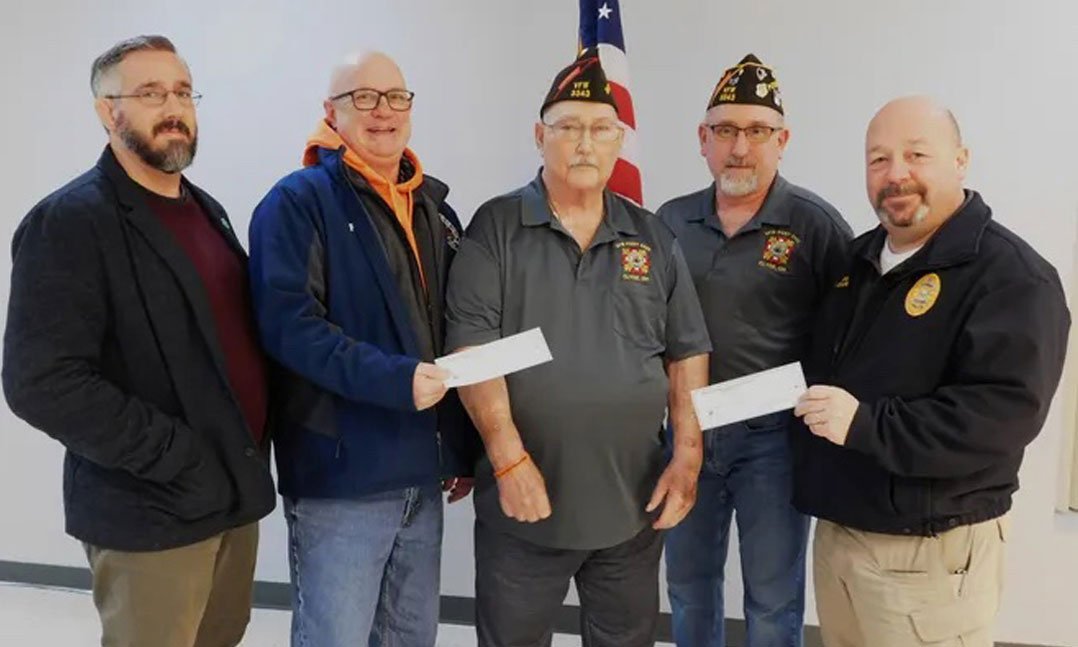In the bustling transition from military to civilian life, Veterans of Foreign Wars stands as a beacon of support and solidarity. With a treasure trove of resources aimed at demystifying benefits, healthcare navigation, financial assistance, and much more, it’s your one-stop platform designed to empower your future. You’ll find a community ready to embrace you, share stories, and help you thrive in your post-service life. Whether it’s educational opportunities, career support, or mental health services, rest assured that you’re not alone. Let’s embark on this journey together, ensuring your voice is heard and your needs are met, every step of the way.
Understanding Veteran Benefits
Overview of Benefits Offered to Veterans
As a veteran, you’ve earned a myriad of benefits through your service to your country. These benefits cover health care, financial assistance, educational opportunities, and more. They’re designed to help you transition from military to civilian life as smoothly as possible and support your journey thereafter. Navigating these benefits can sometimes seem overwhelming, but knowing what’s available is the first step to utilizing them to your full advantage.
How to Apply for Veteran Benefits
Applying for veteran benefits might seem daunting, but it’s a crucial step toward receiving the support and resources you’re entitled to. Start by identifying the specific benefits you want to apply for, whether they’re related to health care, education, or financial assistance. The Department of Veterans Affairs (VA) website is a great starting point. Here, you can find application forms and instructions for submitting them. Remember, accurate and complete information, along with the necessary supporting documents, can expedite the application process.
Common Challenges and How to Overcome Them
Many veterans face challenges when applying for their benefits, including navigating the complexity of the VA system and dealing with lengthy processing times. Information overload and unclear eligibility criteria can also pose significant hurdles. To overcome these challenges, consider reaching out to veteran organizations for guidance and support. They can offer insights, help clarify your doubts, and even assist in the application process. Additionally, patience and persistence are key. Follow up on your applications and don’t hesitate to ask for updates.
Navigating VA Health Care
Eligibility and Enrollment Process
To access VA health care, you must first determine your eligibility based on factors like length of service, service-connected disabilities, and financial status. Once you’ve confirmed your eligibility, the next step is to enroll. This can be done online, in person at a VA healthcare facility, by mail, or by phone. Required documents typically include your DD214 or other separation documents, financial information, and possibly medical records.
Accessing Specialized Care
The VA provides specialized care for various conditions, including but not limited to, PTSD, traumatic brain injuries, and conditions related to exposure to hazardous materials. If you require specialized care, the VA can connect you with experts and facilities equipped to meet your needs. It’s important to communicate openly with your primary healthcare provider about any specific health concerns so they can refer you to the appropriate specialists.
Mental Health Services for Veterans
Your mental well-being is as important as your physical health. The VA offers a range of mental health services to support you, including counseling, therapy, and medication management. There are also programs specifically designed to address the needs of veterans dealing with PTSD, substance abuse, and other mental health challenges. Remember, seeking help is a sign of strength, and numerous resources are available to assist you on your journey to mental wellness.

This image is property of vfworg-cdn.azureedge.net.
Financial Assistance for Veterans
Emergency Financial Grants
For veterans facing financial crises, emergency financial grants can provide a lifeline. These grants can help cover unforeseen expenses such as medical bills, housing, and utilities without the need to repay. Qualifying for these grants typically requires proving immediate financial need and may involve applying through veteran organizations or charities.
Education and Scholarship Programs
Beyond the GI Bill, numerous education and scholarship programs are available to veterans, offering financial support for higher education and vocational training. These programs aim to ease the financial burden of schooling and ensure that veterans can achieve their educational goals without undue stress.
Home Loans and Housing Benefits
The VA home loan program helps veterans purchase, build, or adapt a home. Offering competitive interest rates and often requiring no down payment, these loans are a valuable resource. Additionally, the VA provides grants to help veterans with service-connected disabilities adapt their homes to accommodate their needs.
Mental Wellness and Support
Counseling Services and Support Groups
Counseling services and support groups offer spaces for veterans to share their experiences and work through challenges together. These resources can be pivotal in addressing combat stress, readjusting to civilian life, and enhancing overall mental health. Whether you prefer one-on-one counseling or the solidarity of a support group, there’s something to meet your needs.
Programs for Combat Stress Recovery
Combat stress can have long-lasting effects, but recovery is possible with the right support. The VA and various veteran organizations offer programs tailored to combat stress recovery, combining therapy, education, and peer support to help veterans navigate their way back to a balanced life.
Substance Abuse Treatment Options
Substance abuse is an issue that affects many veterans, often as a coping mechanism for underlying challenges. Recognizing this, there are dedicated substance abuse treatment programs designed to help veterans recover. These programs provide comprehensive support, including detoxification, counseling, and long-term rehabilitation services.

This image is property of www.vfw.org.
Educational Opportunities for Veterans
Utilizing the GI Bill
The GI Bill offers tremendous support for veterans pursuing education post-service. It can cover tuition, housing, books, and more. To make the most of the GI Bill, plan your educational path carefully, understanding the specifics of your entitlement and how it applies to your chosen institution and course of study.
Vocational Training and Career Support
If you’re looking to enter a new career field or update your skills, vocational training can be invaluable. The VA offers programs that cover technical and on-the-job training, as well as apprenticeships. Additionally, many organizations provide career support services, including resume building and interview preparation, to help veterans succeed in the civilian job market.
Scholarships and Educational Grants
Aside from the GI Bill, veterans can access a variety of scholarships and educational grants. These financial aids aim to cover any gaps not filled by the GI Bill, ensuring veterans can pursue their educational goals without financial hindrance. Research and apply for scholarships early, as they can be competitive.
Career Transition and Support
Resume Building and Interview Preparation
Transitioning to a civilian career can be challenging, but crafting a compelling resume and mastering the art of the interview can significantly improve your chances. Seek out resources that specialize in translating military skills and experiences into civilian terms, and take advantage of mock interviews and workshops to hone your skills.
Job Placement Programs
Several job placement programs are designed specifically for veterans, recognizing the value of your experience and skills. These programs can connect you with employers eager to hire veterans, provide job search resources, and offer networking opportunities to help you find a position that’s a good fit for your skills and interests.
Entrepreneurship and Small Business Resources
For veterans interested in starting their own business, there are numerous resources available to help. From business plan development to securing funding, these programs offer guidance and support tailored to the unique needs of veteran entrepreneurs. Leverage these resources to turn your business idea into reality.

This image is property of vfworg-cdn.azureedge.net.
Community and Peer Support
Finding Local Veteran Organizations
Connecting with local veteran organizations can offer camaraderie, support, and access to resources. These organizations understand the unique challenges veterans face and can provide invaluable assistance and opportunities for engagement. Look for chapters in your area and consider joining to become part of a supportive community.
Veteran Mentorship Programs
Mentorship programs pair veteran mentees with experienced mentors, providing guidance, support, and advice on navigating life after service. Whether you’re looking to advance your career, further your education, or simply adjust to civilian life, a mentor can provide the insight and encouragement you need to succeed.
Social Events and Networking Opportunities
Social events and networking opportunities can be excellent ways to connect with fellow veterans and build professional relationships. Many veteran organizations host events that range from informal social gatherings to formal networking sessions, providing avenues for veterans to support and learn from each other.
Advocacy and Legislative Efforts
Current Legislative Priorities for Veterans
Staying informed about current legislative priorities concerning veterans is crucial. These priorities can greatly impact the benefits, support, and services available to you. Many organizations actively work to advocate on behalf of veterans, pushing for policies that support your needs and rights.
How Veterans Can Get Involved in Advocacy
Your voice matters, and getting involved in advocacy is a powerful way to influence policies affecting veterans. Whether it’s contacting your representatives, participating in campaigns, or simply staying informed about issues, your involvement can contribute to positive changes.
Updates on Veterans Affairs Policies
Keeping up to date with changes and updates in veterans affairs policies is essential to ensuring you receive the benefits and support you’re entitled to. Regularly check reputable sources for news and consider subscribing to newsletters or alerts from veteran organizations for the latest information.

This image is property of www.vfw.org.
Women Veterans
Resources and Support Services Specific to Women
Women veterans face unique challenges and require specific resources and support services. Thankfully, there are programs and initiatives designed to address these needs, providing health care, counseling, and community specifically for women veterans. Exploring these resources can help you navigate your post-service life with the support you deserve.
Challenges Faced by Women Veterans
Understanding the challenges faced by women veterans, including health care needs, transitioning to civilian life, and finding community, is crucial. By identifying these challenges, organizations and services can better cater to the specific needs of women veterans, ensuring they receive the support and respect they deserve.
Community Engagement and Female Veteran Groups
Joining female veteran groups can provide a sense of community and understanding that’s hard to find elsewhere. These groups offer a space to connect with others who have shared similar experiences, providing support, friendship, and opportunities for engagement and advocacy.
Navigating Legal Issues
Legal Assistance for Veterans
Veterans facing legal issues, whether related to their service, benefits, employment, or other matters, have access to legal assistance programs. These programs can provide advice, representation, and support to help veterans navigate the complexities of the legal system and protect their rights.
Understanding Veterans’ Rights
Knowing your rights as a veteran is fundamental to ensuring you’re treated fairly and can access the benefits and support you’ve earned. Education on veterans’ rights, regarding employment, healthcare, and more, is key to advocating for yourself and others in the veteran community.
Addressing Legal Challenges in Employment and Healthcare
Veterans may encounter legal challenges related to employment discrimination or accessing healthcare. When faced with such challenges, seeking legal advice and support can make a significant difference in resolving issues and ensuring your rights are upheld.
Remember, you’re not alone in navigating life after service. A wealth of resources, support systems, and communities is available to help you thrive. Whether you’re seeking to further your education, start a new career, or simply find community, don’t hesitate to reach out and take advantage of the opportunities and assistance available to veterans.

This image is property of vfworg-cdn.azureedge.net.
